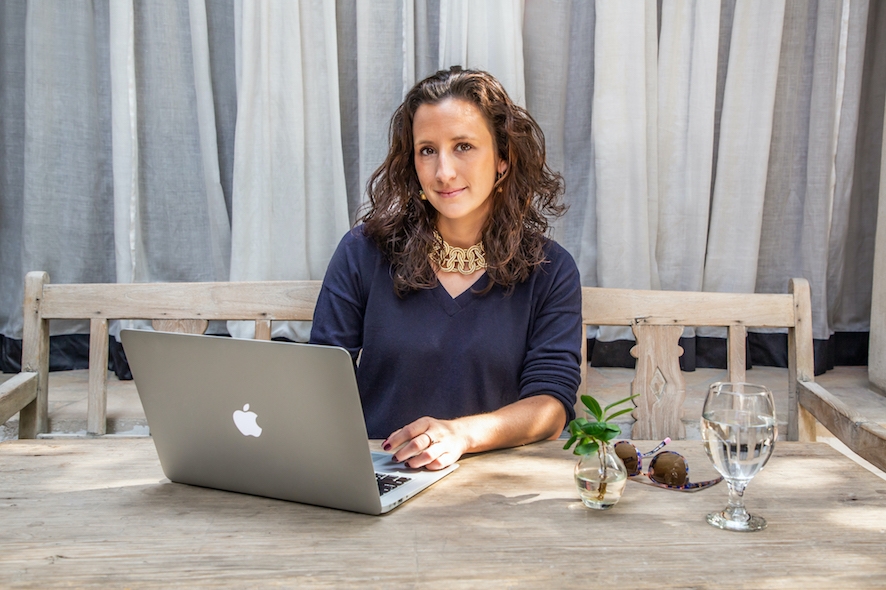Dubai-based Empathetic Leader Mimi Nicklin makes a case for empathy in the office, especially important as the UAE embarks on its post-lockdown return to work.
Words by Mimi Nicklin
It is said that in many a crisis, opportunity is found. The socio-economic impact of Covid-19 means that today, across the globe, people are looking for more authentic and connected leadership and teams than ever before. So much has changed in the months that have passed, and our thinking about the world of work, particularly empathy in the office, is just one of them. We have proven ourselves; to be efficient, to be relied upon, to be connected and consistent, all from disparate corners of our cities. We have proven a new model is not just possible, its necessary.
Whilst we may miss the energy of our offices, our colleagues and the consistency, many of us have also redefined what’s really important to us within that working environment. Anything that resembles autocracy, mediocracy or toxicity in the workplace suddenly seems like a distant daily reality that, quite frankly, we are no longer willing to go back to. Lockdown created time in our days, and space in our minds, to reconsider what really counts. We realised that beyond the rewards, the promotions and the hours that make us our money, connectivity, cohesion and comradery matter. They matter a lot.
There is much discussion about the need for greater levels of emotional intelligence, humanity, and empathy once the pandemic has passed; the world has now seen things in a new light, and our connected humanity is more important than ever. Without a doubt, the socioeconomic impact of Covid-19 will long outlast the health impact, and it is in the leverage of emotional intelligence, and specifically empathy, that organisations and teams will be able to rebuild with pace and resilience. The conversation about empathetic influence and conscientious leadership was relevant before the virus swept our planet. Now it is critical.

3.1 Phillip Lim spring/summer20
Five habits for higher levels of empathy with your colleagues and teams
Actively Listen: Commit to making the people you speak to feel like they are the only person in the room. Ensuring that you are using active listening to provoke deeper understanding is at the key to building depth into your relationships. Phrases like “what I’m hearing you say is…” makes the speaker feel further encouraged, as well as ensuring you can really hear what is being communicated to you.
Be Curious: Curiosity drives connectivity. It is through poignant question asking that we can deepen our understanding of each other. Next time you are in important meeting with your team try to focus on asking questions to better understand their answers, versus simply reacting to the information you are given. Phrases like “can you tell me more?” work brilliantly at unlocking a more deeply insightful information set. As you build a more empathetic listening culture you will start to notice that your team is more deeply connected and sharing far more naturally.
Eye Contact: So much of our connectivity is formed by our eyes and, as we move into an era where much of our face will be covered by masks, our eye contact is an ever more critical part of showing understanding. Without any words at all we can recognise fear, joy, pain or anxiety in another and that can be a deep connector and motivator. Next time you meet a colleague consciously take an extra few seconds to notice the colour of their eyes, the physical effort of doing so will connect you.
Embrace Silence: For us to be able to fully communicate and express ourselves, we need time to think as well as speak. As a colleague or leader showcasing empathy in the office, don’t feel a need to jump into a silent moment and fill it, or to complete a sentence or thought for the other person. Allowing time for the speaker to gather their thoughts, and to round their opinion, is so often the source of a new or profound insight.
Lean Forward: Remembering that the majority of our communication is nonverbal, be conscious to use your body language to promote engagement and connectivity with those around you. Lean inward towards the speaker and ensure your body language is open – with uncrossed arms – and that your eye contact remains focused. These small changes to your stance will go a great distance to creating cohesion between the people in the conversation.
Our new reality as we return to the office demands for more conscientious thinking and a far more balanced relationship between the members of an organisation. It isn’t just the planet and our societies that need regenerative thinking today, we also need regenerative relationships in our teams if we are to inspire our teams to truly thrive.

Dubai-based Empathetic Leader Mimi Nicklin argues that empathy in the office is now more important than ever before
Mimi Nicklin is an experienced Empathetic Leader and Business Coach. For over fourteen years she has been working across the globe with her clients to lead business and culture change. Mimi is driven by the pursuit of bringing conscientiousness to the role and impact of leadership, with a desire to make the world of work a more empathetic, valuable and sustainably healthy place to be. Having lived and worked in London, Hong Kong, Singapore, Cape Town, Johannesburg and Dubai, Mimi’s uniquely global perspective changes organisations from the inside out.
Read Next: Five work wear looks to have steamed and ready-to-go





